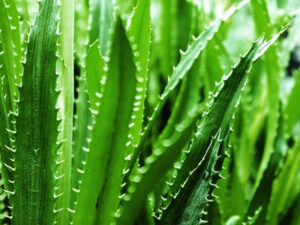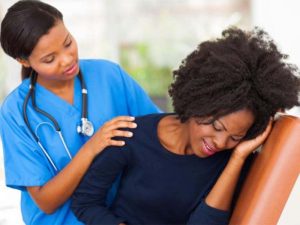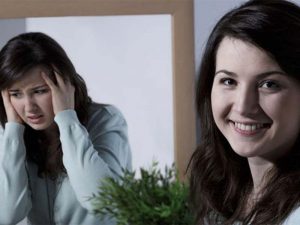Have you been wondering about what might be causing your headaches? We all know how uncomfortable these pains can get sometimes. Sadly, many people suffer from headaches and end up taking OTC drugs without knowing the causes. Various types of headaches have different causes, symptoms, treatments, and preventive measures.
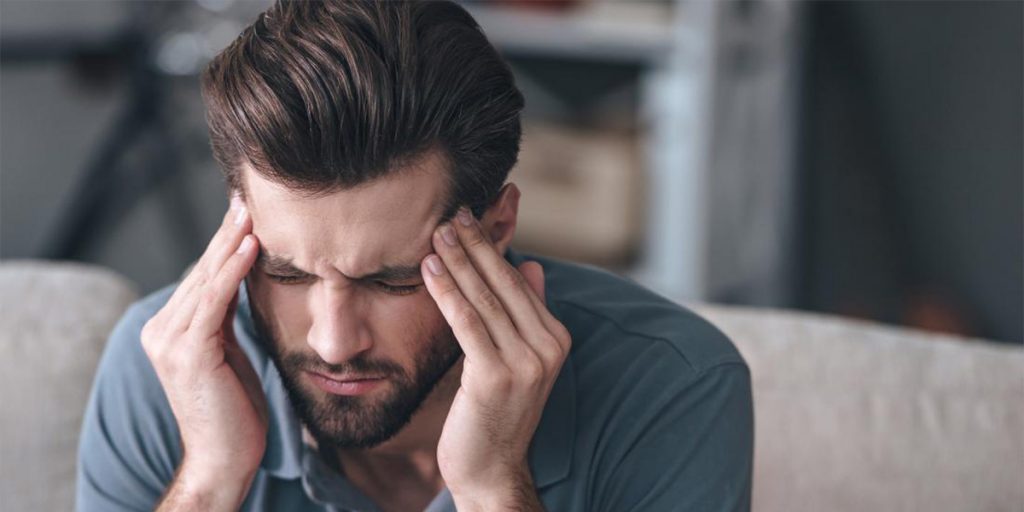
READ ALSO: Top 10 Health benefits of drinking coffee
Headaches are now becoming a common complaint among teens and adults. Experiencing this pain may deter one from attending to his/her daily activities. Even so, identifying the location of the pain can help you know the type of headache you have.
Types of headaches, causes, symptoms, treatment, and prevention
There are two main categories of headaches: primary and secondary
A. Primary headaches
These types of headaches do not result from medical conditions. Primary headaches occur frequently, and they take a short time before disappearing. Primary headaches include;
1. Tension headaches
This primary type of headache is the most common among teens and adults in the world today. Tension headache may cause mild or moderate pain that disappears after a short while. Averagely, this type of headache has affected 78% of the total population in the world. A research from World Health Organization indicates that 1-3% of adults experience a chronic headache.
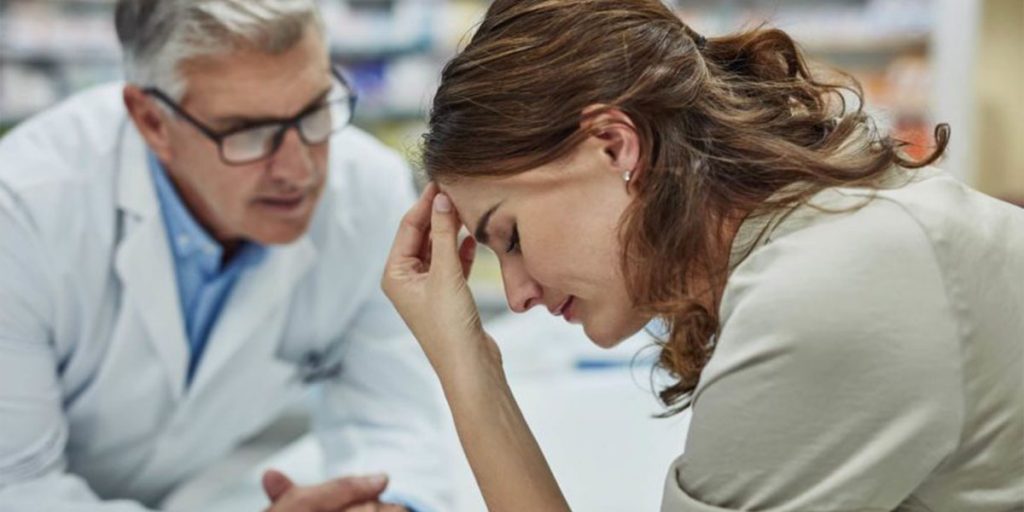
Tension headache is triggered by stress, anxiety, or depression. Other tension causes include;
- Loud noise
- Poor sleep
- Eyestrain
- Loud noise
- Bad posture
- Dehydration
- Lack of exercise
Tension headache symptoms include;
- Sensitive to light and sound
- Feeling pressure in the eyes
- A dull and aching sensation on the sides of the head
- Tenderness around the face, neck, scalp, and shoulders
Usually, people take Over The Counter (OTC) drugs such as aspirin, ibuprofen, and acetaminophen to relieve a tension headache. You can as well treat your regular tension headache by;
- Acupuncture
- Having enough sleep
- Doing regular exercises
- Going for an eye test
- Sitting and standing uprightly
- Managing stress, anxiety and depression
READ ALSO: 11 major health benefits of grapes to the body
2. Migraine headaches
This primary type of headache may cause intense pain within the head disrupting one from managing his/her daily activities. Migraine headaches attack women three times more as compared to men. This type of headache can affect both children and adults. Migraine headache take up to 3 days before it disappears.
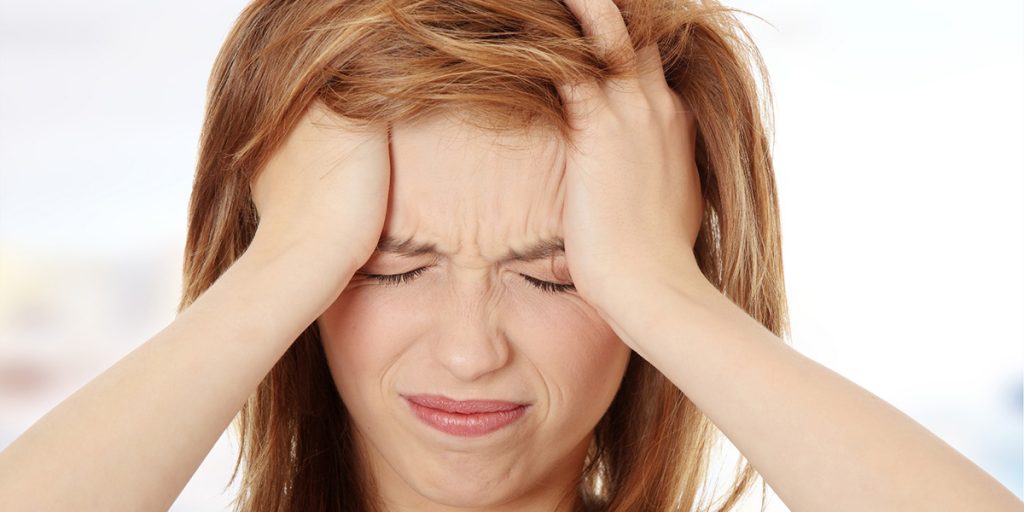
This type of headache might sometimes be running in the family. Other migraine triggers include;
- Dehydration
- Skipped meals
- Sleep disruption
- Stress and anxiety
- Hormonal changes
- Exposure to chemicals
- Bright lights and loud noise
Common symptoms include;
- Nausea
- Vomiting
- Sensitive to light, sound, and smell
- Sharp pain on one side of the head
About a third of people may experience an aura that lasts for about 5 to 60 minutes before having migraine headaches. An aura may cause one to see or feel;
- Numb
- Zigzag lines
- Blind spots
- Flashing lights
- Pins and needles
- Muscle weakness
- Get difficulties speaking
- Tingle on one side of the face
The above aura symptoms may also indicate stroke or meningitis. Therefore, people having these symptoms for the first time should seek medical attention immediately.
Taking the OTC painkillers like aspirin and ibuprofen can stop the migraine pain. Doctors may prescribe antiemetic drugs such as metoclopramide to relieve nausea and vomiting. Other migraine prevention drugs include propranolol, topiramate, and amitriptyline. You can as well ease your migraine pain by;
- Drinking enough water
- Resting in a dark and quiet place
- Putting a cold cloth forehead
3. Cluster headaches
These headaches are among the types of headaches that cause severe pains. Cluster headaches occur in a series. A person may experience this headache three to four times a day in a cluster period for two weeks to 3 months. Usually, a single headache may last for about 15 minutes and 3 hours. These headaches may disappear for months or years before they reappear. Cluster headaches are three times more in men than in women.
There is no clear cause of cluster headaches yet, but they are more common in smokers. Alcohol users should not use alcohol during headache periods.
Some cluster symptoms are;
- Restlessness
- Nasal congestion
- Sensitive to light and sound
- The side affected by headache may swell, sweat and turn reddish
- Burning and sharp pain around or behind one eye
- One side of the face is affected
For pain relief, doctors may recommend the following;
- Sumatriptan
- Oxygen therapy
- Local anesthetic
After diagnosis, your doctor may recommend melatonin, topiramate, and corticosteroids for prevention against cluster headaches. Your doctor may suggest surgery if your case is complicated.
READ ALSO: 11 Health benefits of avocado fruit that will surprise you
B. Secondary headaches
These headaches result from conditions such as head injury or sudden withdrawal of drugs and caffeine. Types of secondary headaches include;
4. Caffeine headaches
This headache is among the types of headaches that are common in people who drink coffee. Caffeine can affect the flow of blood to the brain resulting in a headache. Drinking too much coffee may lead to headaches as well.
Caffeine headache results from several factors. The common causes include;
- Abrupt withdrawal from caffeine
- Daily taking of caffeine of over 200mg for two consecutive weeks
- Consuming of more than 400mg of caffeine every day
Caffeine symptoms are:
- Nausea
- Tiredness
- Feeling moody
- Having difficulties in concentrating
Remember that not every person who withdrawals from caffeine will experience headaches. One can treat caffeine headache by;
- Reducing caffeine intake
- Taking a moderate amount of caffeine
- Limiting from taking caffeine (people with chronic migraine)
5. Sinus headaches
These headaches are rare among people. They result from allergic reactions and mainly occur in the sinus area. Migraine headaches may be misdiagnosed with sinus headache even thou 90% of sinus headaches are migraines.
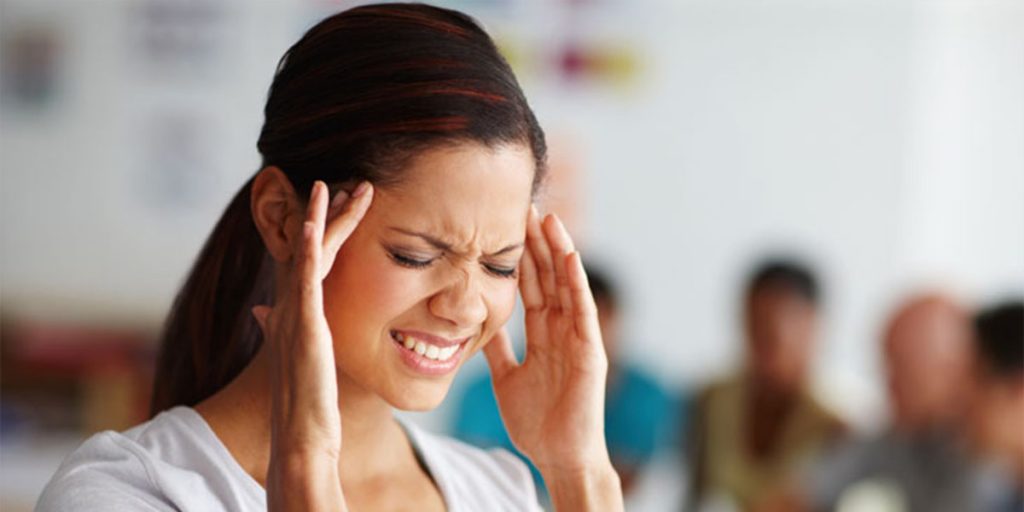
An infection or allergy can lead to the swelling of the sinuses causing a sinus headache. Yellowish or greenish discharge from the nose is a sign of this headache.
Sinus headache symptoms are;
- Fever
- Nausea
- Blocked nose
- Swollen face
- Sensitive to light and sound
- Throbbing pain around the eyes, cheeks, and forehead
A doctor may prescribe antibiotics to relieve your headache and manage infection symptoms as well. This type of headache can be treated by;
- Nasal steroid sprays
- OTC decongestants
- Antihistamines such as cetirizine
Visit a doctor when symptoms persist for more than one week.
READ ALSO: 10 major health benefits of garlic
6. Hormone headaches
This type of headache is among the types of headaches that are common in women. The problems are associated with a menstrual cycle that is also known as menstrual migraine. Hormone headaches usually occur before, during, after menstrual periods or sometimes during ovulation.
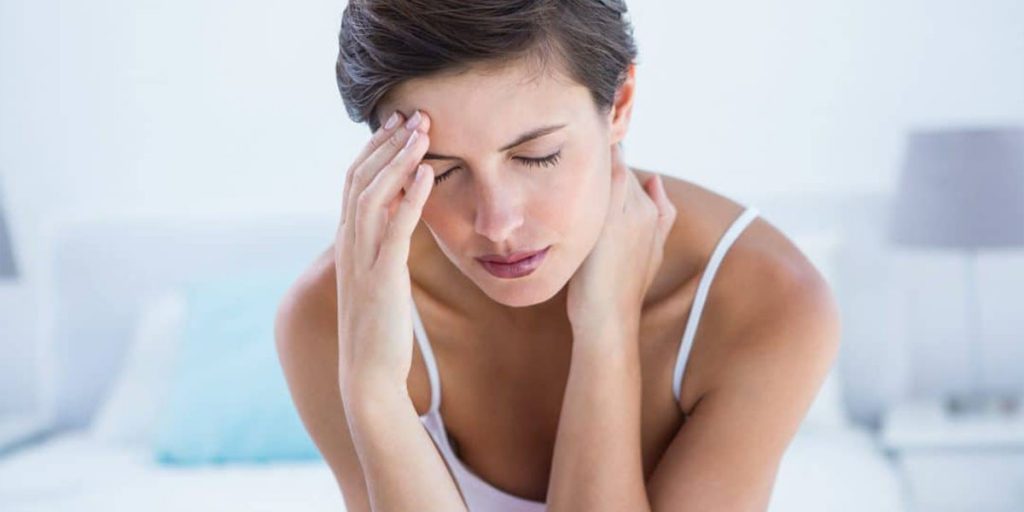
These headaches have similar symptoms like a migraine but without aura. Hormone headaches may last longer or even be more debilitating.
The natural changes in the estrogen hormone levels cause this headache. Other common causes of this headache include;
- Pregnancy
- Menopause
- Use of contraceptive pills
Treatment for hormone headaches is similar to that of migraine headaches but with no aura. Your doctor may prescribe OTC painkillers like naproxen and medications like frovatripan to control this headache. The preventive measures for this headache are;
- Hormonal therapy
- Use of alternative oral contraception plans
- Hormone replacement therapy in menopause women
Observing the following remedies can also help one from experiencing hormone headache;
- Doing yoga
- Acupuncture
- Eating a modified diet
- Practicing relaxation techniques
7. Rebound headaches
Also called medication overuse headache, rebound headache is the most common among the secondary types of headaches. People who use painkillers frequently are more susceptible to this type. You can only avoid this headache by weaning from the drugs you have been using. However, one is to stop medication under the doctor’s supervision.
Using the following drugs for more than 15 days a month may cause a rebound headache;
- Opioids
- Triptans
- Acetaminophen
- NSAIDs like aspirin and ibuprofen
Withdrawing from drugs may worsen your headache, but the pain can stop after ten days. The weaning symptoms include;
- Nausea
- Vomiting
- Restlessness
- Increased heart rate
- Sleeping disturbances
One may revert to his/her original headache pattern after two months, after which he/she can start using the pain relievers again.
The preventive measures toward rebound headache are;
- Avoiding using codeine
- Taking painkillers not more than two days a week
- Using preventive medications to treat chronic migraine
8. Exertion headaches
This type of headache is common among people and is usually short-lived. An intense activity can increase the flow of blood to the skull leading to headache to both sides of the head.
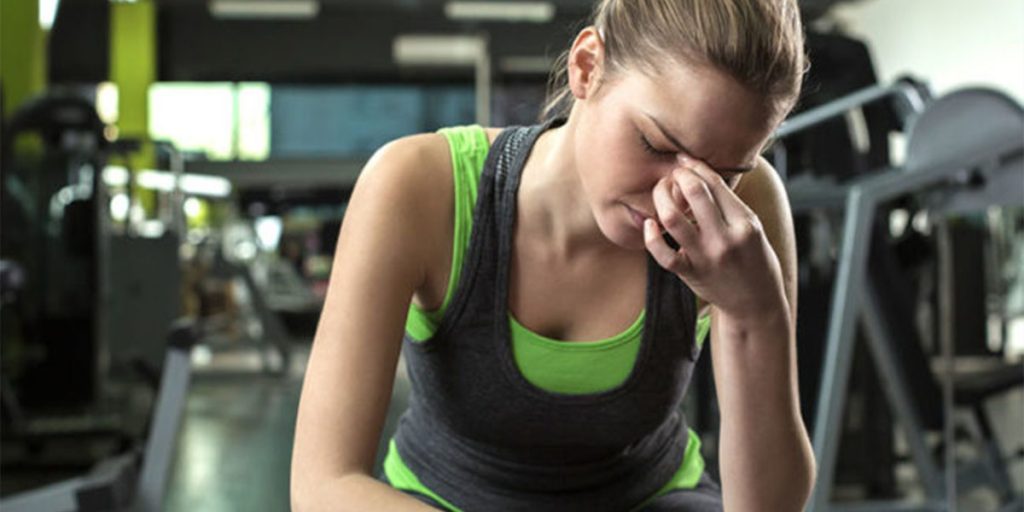
The following factors can trigger exertion headache;
- Running
- Weight lifting
- Sexual intercourse
Ease your problem by taking;
- Analgesics like aspirin and ibuprofen
- Taking nonsteroidal anti-inflammatory drugs (NSAID) and beta-blockers before exertion may help prevent this type of headache.
If you are experiencing exertion for the first time, then it is good to visit a doctor because it may be a sign of a medical condition.
READ ALSO: 11 Health benefits of avocado fruit that will surprise you
9. Post-traumatic headaches
This type of headache may develop immediately after having a head injury. Post-traumatic problems can also develop after some time of the head injury, making it hard for doctors to diagnose it. These headaches feel tension or migraine-like types of headaches. Post-traumatic headaches last for about 6-12 months.
If you experience these symptoms below after a head injury, immediately contact an ambulance for safety.
- Confusion
- Seizures
- Vomiting
- Memory loss
- Unconsciousness
- Hearing or vision problems
These headaches may become chronic, but doctors usually prescribe the following to help relieve the pains;
- Triptans
- Sumatriptan
- Beta-blockers
- Amitriptyline
10. Hypertension headaches
People with high blood pressure conditions are the most likely to experience this pain. This type of headache signals danger whenever a person’s blood pressure is extremely high. It affects the sides of the head and even worsens when doing an activity.
Hypertension type of headache is caused by the high flow of blood that is above the standard human blood flow.
Some common symptoms for this pain are;
- Numbness
- Nose bleeding
- Having chest pains
- Shortness of breath
- Changing a person’s vision
Seek a doctor’s attention if you realize this headache. These headaches cannot reoccur as long as the blood flow is balanced.
11. Hangover headaches
This secondary type of headache usually occurs in people who drink alcohol. They develop after some hours of drinking liquor. Hangover headaches seem like migraine headaches, and they affect both sides of the head. The problem worsens, especially when making movements.
Remember that not everyone who drinks liquor will experience this headache even thou most people do. This hangover headache may last up to 72 hours.
The common symptoms of this headache include;
- Nausea
- Sensitive to light
- Pain at both sides of the head
There is no specific cure for this type of headache, but drinking plenty of water, eating sugary foods, and taking the OTC painkillers will relieve your pain.
Reduce the risk of hangover headaches by;
- Drinking moderately
- Taking water in between alcohol drinks
- Not taking alcohol in an empty stomach
READ ALSO: 12 health benefits of lemon water you should know
The types of headaches above are treated with different drugs. Seek medical attention whenever you experience a severe headache, especially those of the secondary type. Always remember that your health matters a lot to us.
READ ALSO:

